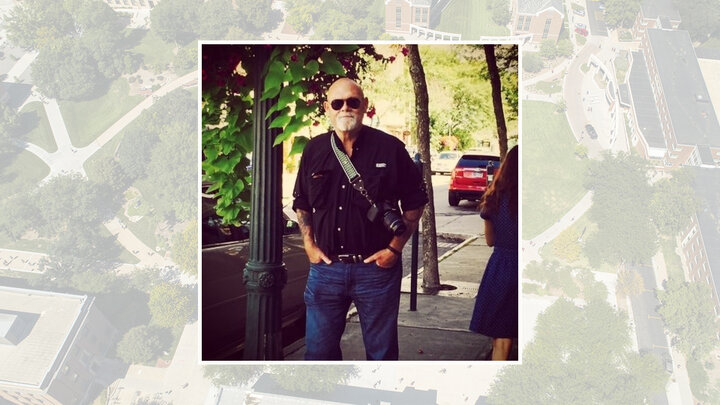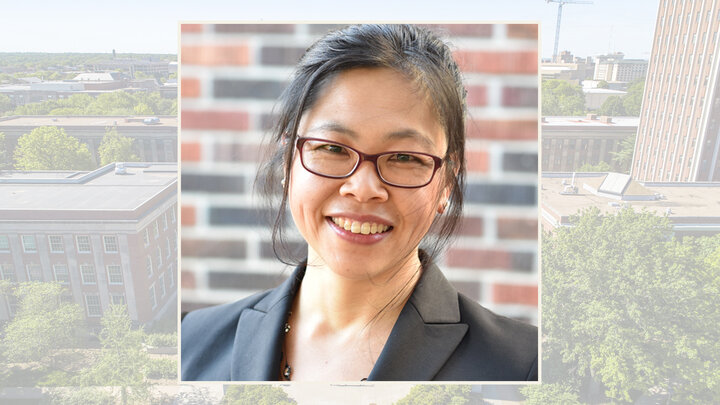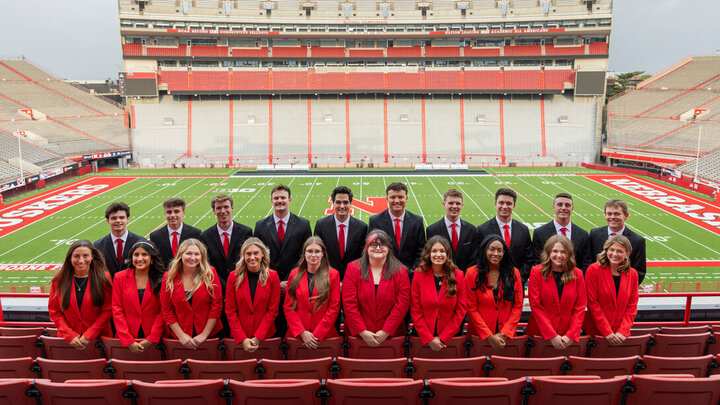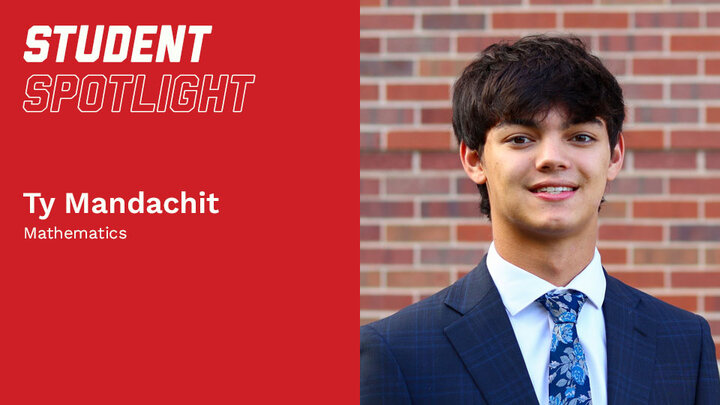When retired lawyer Dick Marshall was once challenging an engineer’s work during a deposition, the engineer held fast to his conclusions, notwithstanding his methodology was flawed, and referred to his numbers as “fuzzy math.”
“There is no fuzzy in math, just like ‘there’s no crying in baseball!’ ” said Marshall, a 1974 graduate in mathematics from Nebraska. “While my duty and loyalty was always to my client, I was able to recognize that when the numbers don’t add up, so to speak, you ought to admit it.”
Marshall also has accepted that he is a poster advertisement for succeeding in math in spite of yourself. During his time at UNL, the Lincoln native planned his own curriculum, did not interact with math department faculty very much and did not live on campus.
“Truth be told, today I would not recommend the path I took over 40 years ago,” Marshall said. “Math always came easy for me, and I likely did not realize how much more I could have learned had I known then what I know now. In today’s world, it takes a village, and interaction with faculty and the department is critical. I saw that firsthand during my recent visit and tour of the math department facilities.”
Marshall spent 32 years at an oil and gas law firm in Austin, Texas, representing upstream oil and gas producers who lease land and drill wells in search of oil or gas, before retiring in 2011. His work was primarily in the state regulatory arena before the Railroad Commission of Texas, collaborating with geologists, geophysicists and engineers.
His background in math gave him a smooth transition into understanding and critiquing the work of his clients’ experts, as well as cross-examining opposing experts.
“It was rare that I was not able to follow an expert’s work or opinions and formulate my questions,” Marshall said. “The oil and gas business is by nature very competitive.”
Marshall started at UNL as a civil engineering major, switched to electrical engineering, and then found his true passion to be math and physics. As a mathematics major, his favorite courses were linear algebra, advanced calculus and statistics and probability. His courses in philosophy also helped lay the groundwork for choosing to attend law school.
“Look at any path you decide to take in college and beyond – you will find that a math background is by far and away the top discipline for eventual success,” Marshall said. “I believe that the elements of logic, which I honed in my philosophy studies, are critical to the study of law, and English composition is also a valuable tool for the study of law. Couple those with a math background, and you have a good head start in law school.”
Never underestimate grammar, Marshall added. One of more irritating trends he saw toward the end of his practice was the failure of opposing lawyers to have a grasp on proper grammar. Despite his personal feelings that is he not the best writer, Marshall was the editor-in-chief of the law review at Creighton University his final year in law school and was able to bring the publication up to date.
Marshall said he has learned over the years that hard work and perseverance can overcome long odds. He and his wife, Liz, have been married for 47 years and met in junior high. Their 36-year-old daughter was born with Cystic Fibrosis, and her fight against the disease has been an inspiration to them. Avid motorcyclists, Dick and Liz travel across the country on his Harley Davidson touring bike; in 2002, they rode the entire length of the Lewis and Clark Trail from St. Charles, Missouri, to Seaside, Oregon.
“I attribute much of my success in law school and beyond to a road less traveled by most law students,” Marshall said. “I spent two years after undergrad driving trucks, including a year driving an 18-wheeler over the road. People skills are critical and life lessons learned by working in the real world often yield enormous dividends. With a math degree, you can chart virtually any path that interests you and your odds of success will better because of it.”




